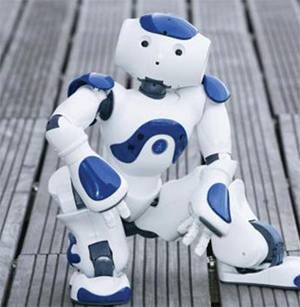LONDON (TIP): Scientists have incorporated an artificial brain in a humanoid robot, enabling it to understand what is being said and even anticipate the end of a sentences. The ‘simplified’ artificial brain system has allowed the robot to learn, and subsequently understand, new sentences containing a new grammatical structure. This technological prowess was made possible by the development of a “simplified artificial brain” that reproduces certain types of so-called “recurrent” connections observed in the human brain.
The artificial brain system enables the robot to learn, and subsequently understand, new sentences containing a new grammatical structure. It can link two sentences together and even predict how a sentence will end before it is uttered, according to the research published in the journal PLoS One.
Inserm and CNRS researchers and the Universite Claude Bernard Lyon 1 have succeeded in developing an “artificial neuronal network” constructed on the basis of a fundamental principle of the workings of the human brain. In a video demonstration, a researcher asked the iCub robot to point to a guitar then asking it to move a violin to the left.
Before performing the task, the robot repeated the sentence and explained that it has fully understood what it has been asked to do. For researchers, the contribution that this makes to research into certain diseases is of major importance.
This system can be used to understand better the way in which the brain processes language. “We know that when an unexpected word occurs in a sentence, the brain reacts in a particular way. These reactions could hitherto be recorded by sensors placed on the scalp,” explains researcher Peter Ford Dominey. The model developed by Dr Xavier Hinaut and Dr Peter Ford Dominey makes it possible to identify the source of these responses in the brain.
If this model, based on the organization of the cerebral cortex, is accurate, it could contribute to possible linguistic malfunctions in Parkinson’s disease. This research has another important implication, that of contributing to the ability of robots to learn a language one day.
